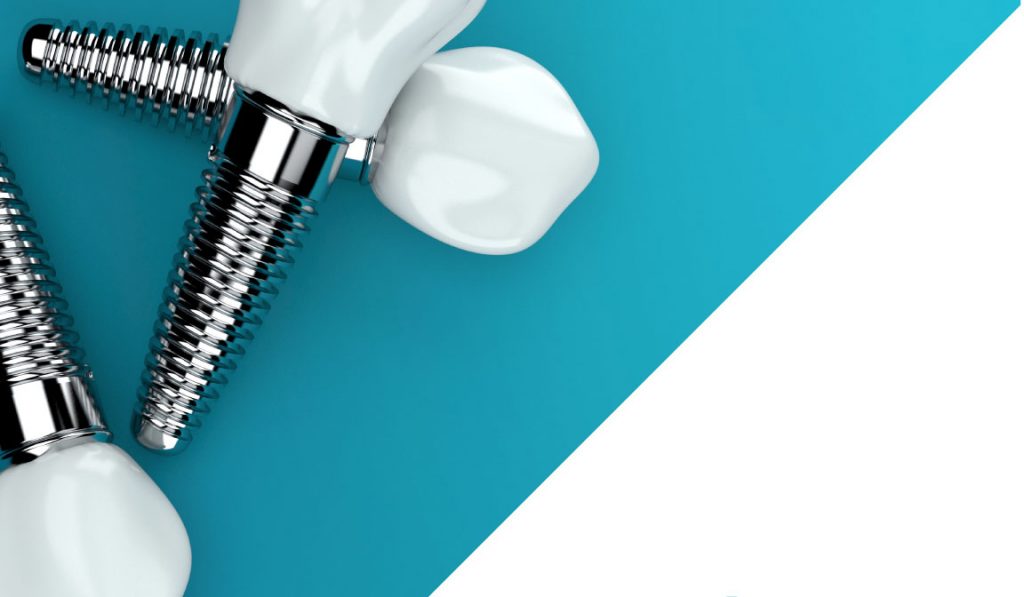Diş implantları ; Günümüzde diş implantları muhtemelen doğal dişlere en iyi alternatiftir. Geleneksel köprü ve protezlere göre daha iyi konuşma ve çiğneme işlevi sağlarken aynı zamanda yüzünüze doğal bir görünüm kazandırır.
Günümüzde implantın 21. yüzyılda en çok çalışılan diş tedavisi şekli olduğu anlaşılmaktadır. Doğru teşhis, yeterli bilgi, tecrübe ve ekipmanla uygulandığında diş implantı, hasta ve hekim için başarılı sonuçlar verebilecek bir tedavi şeklidir.
What is implant (tooth implantation)?
In short, an implant is an artificial tooth root placed in the jawbone and made of suitable material in order to restore the function and aesthetics of missing teeth.
Are there types of implants?
Yes. Different implant types have been produced after serial use. However, the most popular implant type today is the ‘screw’ shaped ones.
Is treatment with implants safe and long-lasting?
Studies to create a safe and high quality implant have been going on since 1809. Today, there are very close to perfection implants with 35 years of clinical follow-up, as well as relatively new implant brands on the market. Your dentist will give you more detailed information on this subject.
Can implants be used in every event?
If there is a single tooth or more than one tooth missing, if there is enough bone for implant placement, the implant can be used.
Can each patient be implanted?
Implant screws are structures that have a specific thickness and width. For this reason, in the area where the implant is to be placed, the jawbone must have a height and width to accept this implant screw. The quality of the existing bone is also one of the factors affecting implant success. In addition, the gums must be completely healthy before treatment and as long as the implant remains in the mouth. As long as the general health of the patient is good, there is no upper age limit to prevent implant application, but it may not be preferred to apply to very young patients whose bone development is not completed.
Will I feel pain when placing the implant?
No, if appropriate anesthesia methods are applied. During the operation, general or local anesthesia can be used according to the patient’s preference. Generally, the pain that can be felt in the evening when the implant is placed can be relieved with simple painkillers. Many patients state that this pain is not different from the pain felt after a normal tooth extraction. In cases where the treatment is completed without any problems, you will be comfortable enough not to even feel the presence of implants.
Can my prostheses be fitted immediately after implants are placed?
No. The loads on the implant should be minimized during the first 3-6 months, which is the healing period, in order to ensure the complete integration of the implants with the bone (osteointegration). However, your doctor will minimize the function problem by making a temporary prosthesis suitable for you during this recovery period.
I want to have an implant, how long is the total treatment time?
Implant operations are now possible to be performed in just half an hour. The total time varies according to the operation type determined according to your tooth and bone structure. In general, the procedure is completed in the 3rd month after the first operation.
Is the cleaning of the implants important?
Yes. Cleaning of implants is very important. Considering that implants are foreign objects in the mouth, you will appreciate that their cleaning is at least as important as your own teeth, or even more. Although the cleaning of the implants requires a certain learning process, it is not difficult. However, you must allocate enough time for this job. The thing to remember is that the most important factor required for this type of treatment to be successful is regular oral care.
How is prosthesis placed on implants?
Prostheses to be made on implants can be of different types depending on the nature of the case. In other words, these can be planned in a way that they can be removed by the patient for easy cleaning or can only be removed by the dentist. Both planning have advantages and disadvantages, and your physician will explain the appropriate design for you before your treatment begins.
Can each patient be implanted?
Implant screws are structures that have a specific thickness and width. For this reason, in the area where the implant is to be placed, the jawbone must have a height and width to accept this implant screw. The quality of the existing bone is also one of the factors affecting implant success. In addition, the gums must be completely healthy before treatment and as long as the implant remains in the mouth. As long as the general health of the patient is good, there is no upper age limit to prevent implant application, but it may not be preferred to apply to very young patients whose bone development is not completed.
Will I feel pain when placing the implant?
No, if appropriate anesthesia methods are applied. During the operation, general or local anesthesia can be used according to the patient’s preference. Generally, the pain that can be felt in the evening when the implant is placed can be relieved with simple painkillers. Many patients state that this pain is not different from the pain felt after a normal tooth extraction. In cases where the treatment is completed without any problems, you will be comfortable enough not to even feel the presence of implants.
Can my prostheses be fitted immediately after implants are placed?
No. The loads on the implant should be minimized during the first 3-6 months, which is the healing period, in order to ensure the complete integration of the implants with the bone (osteointegration). However, your doctor will minimize the function problem by making a temporary prosthesis suitable for you during this recovery period.
I want to have an implant, how long is the total treatment time?
Implant operations are now possible to be performed in just half an hour. The total time varies according to the operation type determined according to your tooth and bone structure. In general, the procedure is completed in the 3rd month after the first operation.
Is the cleaning of the implants important?
Yes. Cleaning of implants is very important. Considering that implants are foreign objects in the mouth, you will appreciate that their cleaning is at least as important as your own teeth, or even more. Although the cleaning of the implants requires a certain learning process, it is not difficult. However, you must allocate enough time for this job. The thing to remember is that the most important factor required for this type of treatment to be successful is regular oral care.
How is prosthesis placed on implants?
Prostheses to be made on implants can be of different types depending on the nature of the case. In other words, these can be planned in a way that they can be removed by the patient for easy cleaning or can only be removed by the dentist. Both planning have advantages and disadvantages, and your physician will explain the appropriate design for you before your treatment begins.
What advantages does implant treatment offer in which cases?
Patients who completely lose their teeth in the lower jaw and carry a prosthesis:
Patients complain of constant pain (pounding) due to the movement of the prosthesis and not being able to chew well. This complaint increases with the melting of the bone tissue that supports the prosthesis over time. In such patients, implant treatment eliminates all the above complaints and also stops the melting of the bone.
Patients who completely lose their teeth and wear a prosthesis in the upper jaw:
Although upper prostheses are more stable than lower jaw prostheses, the design of the prosthesis that covers the palate can reduce the sense of taste and cause nausea.
Patients who have lost some of their teeth in the lower or upper jaw:
The complaint of these patients can be counted as the ugly appearance of the prosthesis attached with hooks or the necessity of cutting their healthy teeth in order to make a bridge.
Patients who have lost a single tooth:
These patients are those who have to sacrifice at least two adjacent teeth for the restoration of a single tooth. The placement of a single implant saves neighboring teeth and causes more aesthetic and functional results.
What are the disadvantages of implant treatment?
High price
Oral cleaning process, which should be done with great care and time.
What are the advantages of implant treatment?
Chewing better, eating whatever you want
Better aesthetic appearance
A happier social life with the recovery of self-confidence
A healthier and more balanced diet based on being able to eat everything
What will be done in the implant examination?
During this examination, it is the best way to examine you by the specialist physicians who will place the implants, make the prosthesis and undertake the periodic gingival care in order to reveal whether you are a suitable patient for treatment. During this examination, you will be informed about your general health status and you may be asked to take some tests if necessary. At this stage, you may also need to obtain various x-ray examinations and models of your mouth.









 No more dentures!
No more dentures!